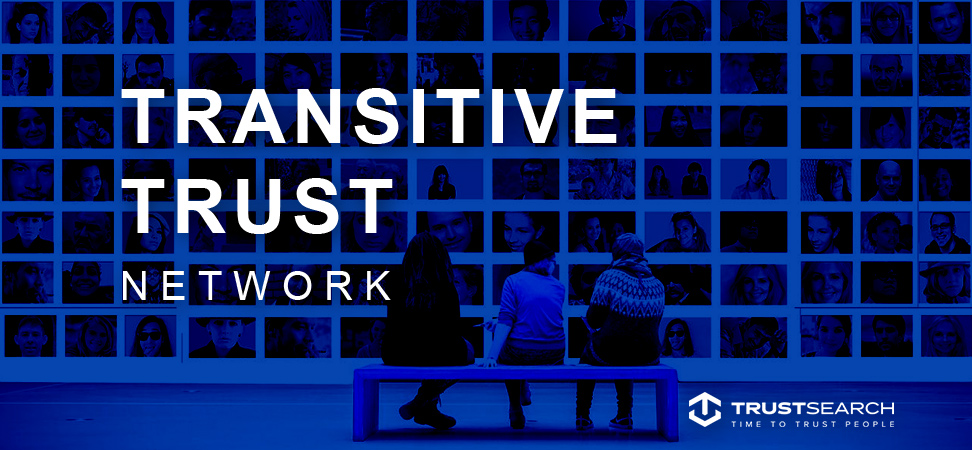
Cost of trust in economic relationships
I have always been fascinated by high heels. Precisely the glamour of the girls wearing them. The drum-like sound of seduction of their impact on a freshly cleaned ground. The way they spice up sexiness and take an outfit to a whole new level. Of course, I’m not anywhere near as deranged as Jerry Brudo is. But in the same way most of my male friends feel.
Surprisingly, anthropologist have a disturbing explanation of the high-heels fever in straight men. The explanation is well hidden in our “old brain” and wrapped up in the “rational” frontal cortex. We love high-heels because we instinctively infer that women wearing them will not be able to run away in case of danger. I’m sorry for completely messing with the way you’ll ever look at a pair of women Louboutin from now on. But the findings are worth exploring.
That is, they need our protection. They trust us enough and need our protection. In fact, evolutionary psychologists argue that humans do most of what they do to be trusted. Because that secures love and acceptance. For our “old brain”, that means “survival”.
In seduction as well as in business, trust plays a pivotal role. Whether directly held, anonymously settled, or mediated, the trustworthiness of both counterparties engaged in any exchange of some sort often bears a greater significance that goes beyond the exchange itself.
From an institutional economics standpoint, being able to asses and numerically estimate the cost of trust hinges on various factors, such as deciphering the various components that add up to establishing trust, enforcing it through contractual arrangements and third parties efforts, and guaranteeing accountability of such trust.
However, conventional ledger technology predominantly used in economies for record keeping purposes, is highly paper-based, both labor and capital intensive, and involves manual work to some extent. It turns out to be costly to maintain and possible to tamper with since it presents a single point of failure from an architectural point of view, due to centralization. In this article, we’ll get back to the basic definitions before establishing the economic significance of trust and evaluating its true cost. Lastly, we will introduce TrustUnion, our solution to curb trust costs.
The definition of trust
First, we need to establish that “trust needs meaning”, to quote CTO Cyril Ternay. Etymology wise, trust is a truism implying that human beings, as sociable animals depend on one another to exist, to survive, and to thrive. Trust could also be defined as that state, wherein a person believes in the reliability of another person, and its ability to perform or undertake a given task, or achieve an objective. Hence, it always involves three major aspects; vulnerability, risk and expectation (Sankaranarayanan et al 2007). It’s the embodiment of … high-heels, isn’t-it? Here’s how.
Vulnerability stems from the ex-ante subscription of a given person (say the lady in a high heels) that others would act beneficently towards him (or her). That is, they will not opportunistically betray him even when they are not required to do so.
Rousseau et al (1998) define that in a trusting situation, two generic classes of people are involved: the trustor (in our case the lady in high heels) and the trustee (i.e., a male largely driven by testosterone-fueled libido). The trustor is the one that places himself in a vulnerable spot under uncertainty, while the trustee is the one to whom trust is gifted and who has the opportunity to take advantage of the trustor’s sense of vulnerability.
Risk is the second quality that trust entails. Oliver Williamson (Williamson 1993, p. 463) explains it by the fact that trust is warranted when the expected gain from placing oneself at the mercy of a trusty is positive. Risk in our example is wearing high heels and not being able to escape any danger. The “flattering” decision to accept such risk implies the existence of trust.
Finally, there is an expectation by the trustor that the trustee will not take advantage of the trust bestowed to him and betray it. The absence of that uncertainty, however, suggests that the outcome will always be the same whether trusting is involved or not. This makes trust trivial in that case.
Economic significance of trust
The economic significance of trust however is far more complex and involves various considerations and interacting agents making it highly contextual. To understand the economic dimension of trust, one should first distinguishes between its personalized form (as when trusting occurs within an intimate setting between family members or friends) and its generalized form (applicable to counter parties with no intimate ties between them).
During an exchange process, generalized trust implies the fulfillment of commitments agreed upon. It infers the respect to the attributes or quality of the exchanged goods or services.
In a local setting, formal institutions play a vital role in perpetuating the safety of exchange within the confines of the local economy. It could establish/enforce high degrees of trust. Contractual arrangements specifying the obligations of each party taking part in an exchange process is seen by many economists as mandatory for economic stability and growth. Furthermore, impartial enforcement by the legal system or other mandated third parties in the event of dispute is of paramount importance.

The cost of trust
Quite a few Empirical relationships exist tying trust to various economic performance aspects. In fact, mathematical evidences derived from data analysis, have shown consistency between upholding trust in an economic setting, and reducing transaction costs alongside improving overall economic coordination (Laporta et al. 1997, Zak and Knack 2001, Francois and Jaboznik 2005, Guiso et al. 2009, Aghion et al. 2010, Algan and Cahuc 2013).
In breaking down the components related to the cost of trust, it could be helpful to consider the impact of mistrust, and both its direct and induced cost to the overall economy where it takes place. From that standpoint, mistrust has been linked to a demand of restrictive regulations and costly control systems (Ibid., p. 1028, Pinotti 2012). Thus, the cost of trust could be seen as a subset of transaction costs.
Other trust cost components include its sociological and cultural dimensions alongside the “Cost of Persuasion” (Davidson et al. 2018). That cost comes from the efforts of performing certain actions or supporting certain beliefs as a means of trust building and a way of creating a social context in which persuasion may take place.
A method of trust estimation in the American economy
Davidson et al. 2018 established a method providing a preliminary assessment of the cost of trust in the US economy. The study presents an aggregated cost of persuasion after establishing an employment-to-occupation breakdown, and assigning subjective weights to those occupations. The weights take into account the average percentage of time spent on upholding trustful relationships for each occupation. Once weights assigned, the method put forth in the study multiplies the employment figures by the weights to estimate a “cost of trust adjusted” employment total for the whole US economy. The latter indicates the amount of employment absorbed by the activity dedicated to uphold trust.
The results presented by the study give an estimate that around 35% of the employment in the US is linked to activities aimed at maintaining and improving trustful economic relationships.
This cost ranges from 13% in natural resources, construction, and maintenance occupations, to 48% in management, professional, and related occupations.
A final word
Even considering that those results are preliminary and subject to further qualifications and cross verification, it is safe to hold that trust establishment and maintenance in its generalized form, has a hefty cost for every economy. And despite new economies emerging, they all lacked the underlying skeleton to establish a non-refutable trust.
This is the reason that makes us believe to hold the keys for the next “trust-based economy”. In a sharing economy where we trust strangers to ride with us or to rent our apartment for the weekend, we should be able to digitize trust and fill in the void left by rapid economic transitions.
What about a score, registered in a Blockchain, transparently and willingly shared between both parts of a transaction? We have every reason to think of it as just around the corner. And we will pioneer its advent. Being voted the best startup of Blockshow Asia makes us even more determined to make it happen.

For live updates and close community engagement, please join TrustUnion’s social channels


